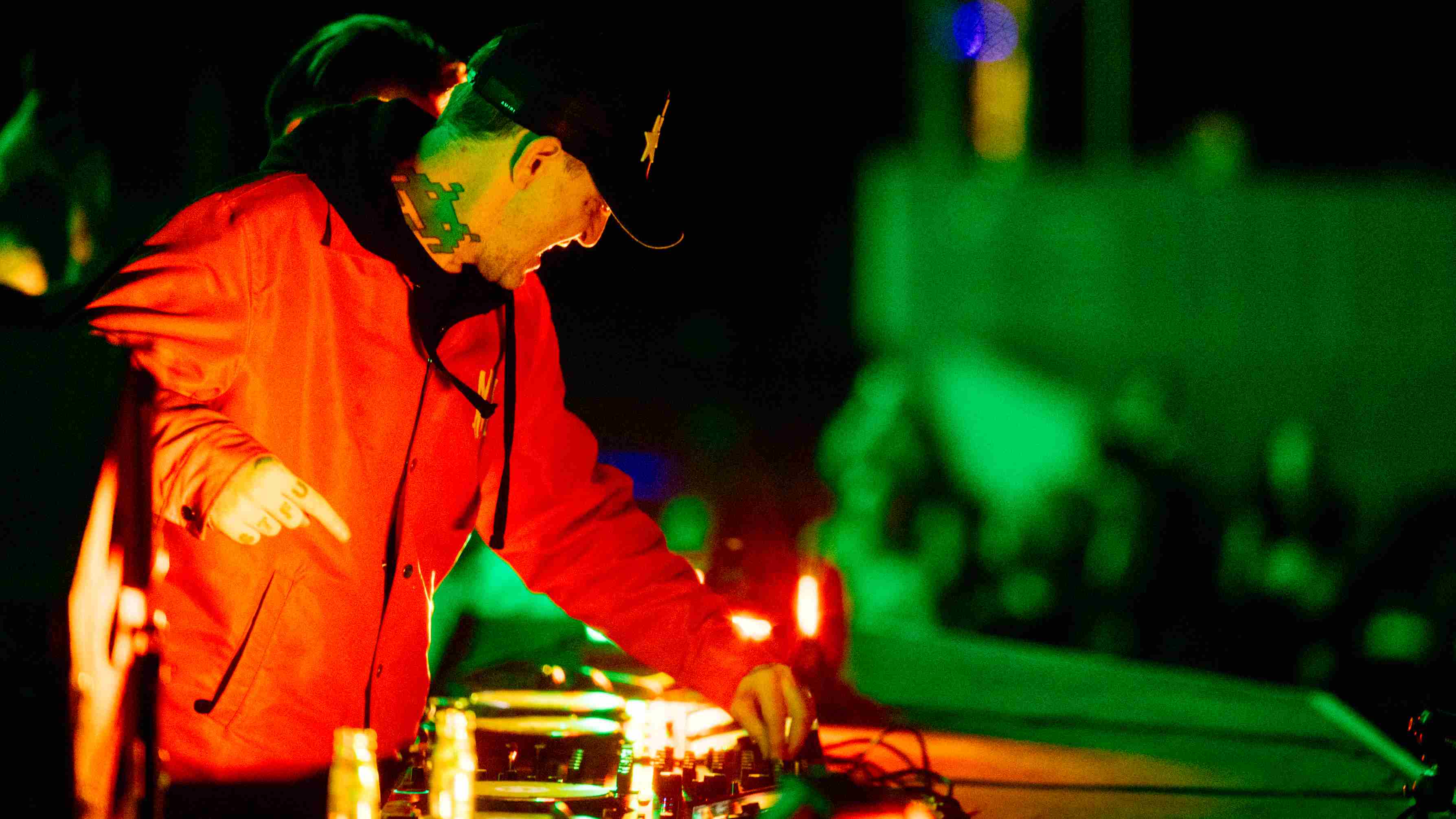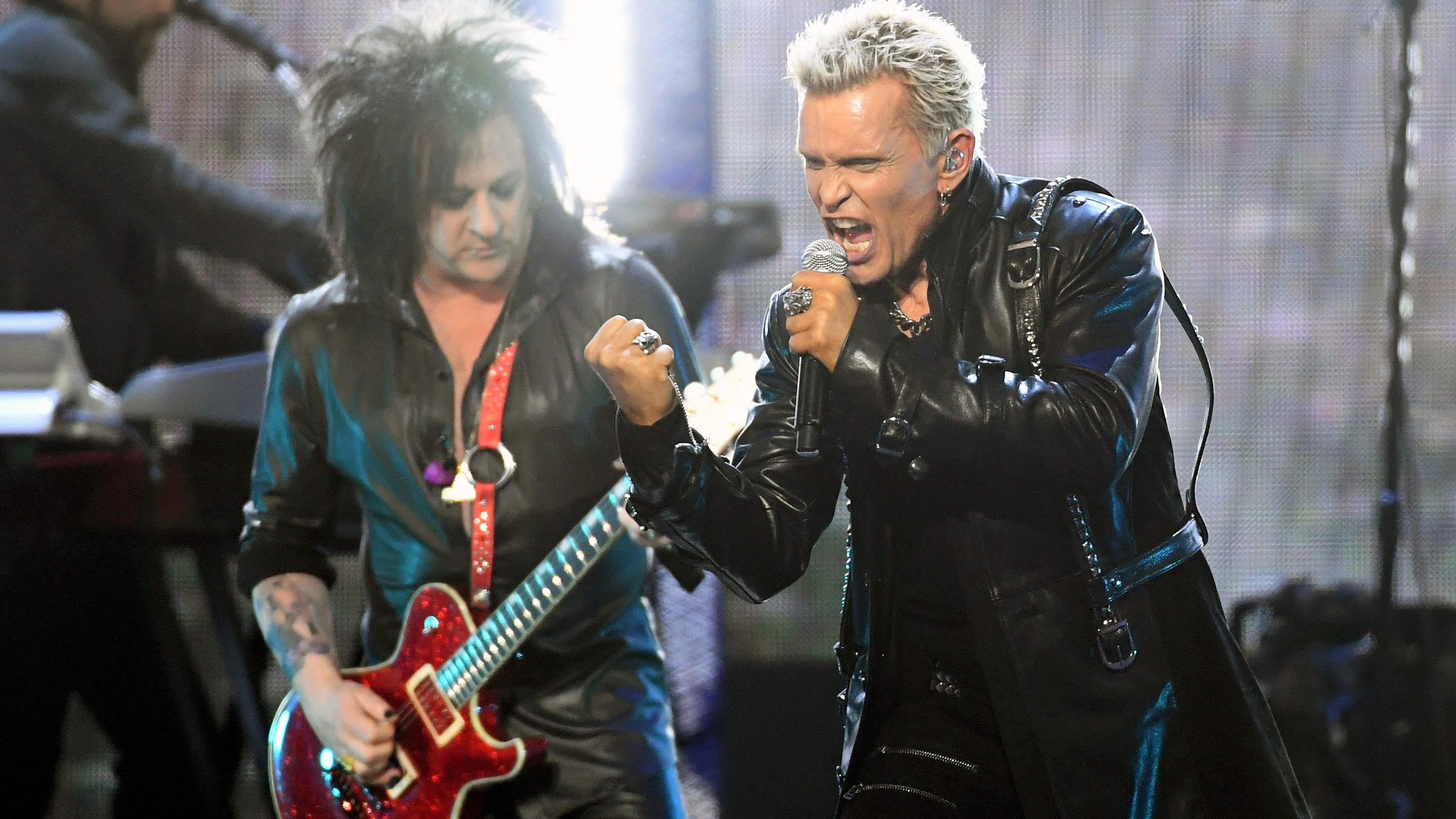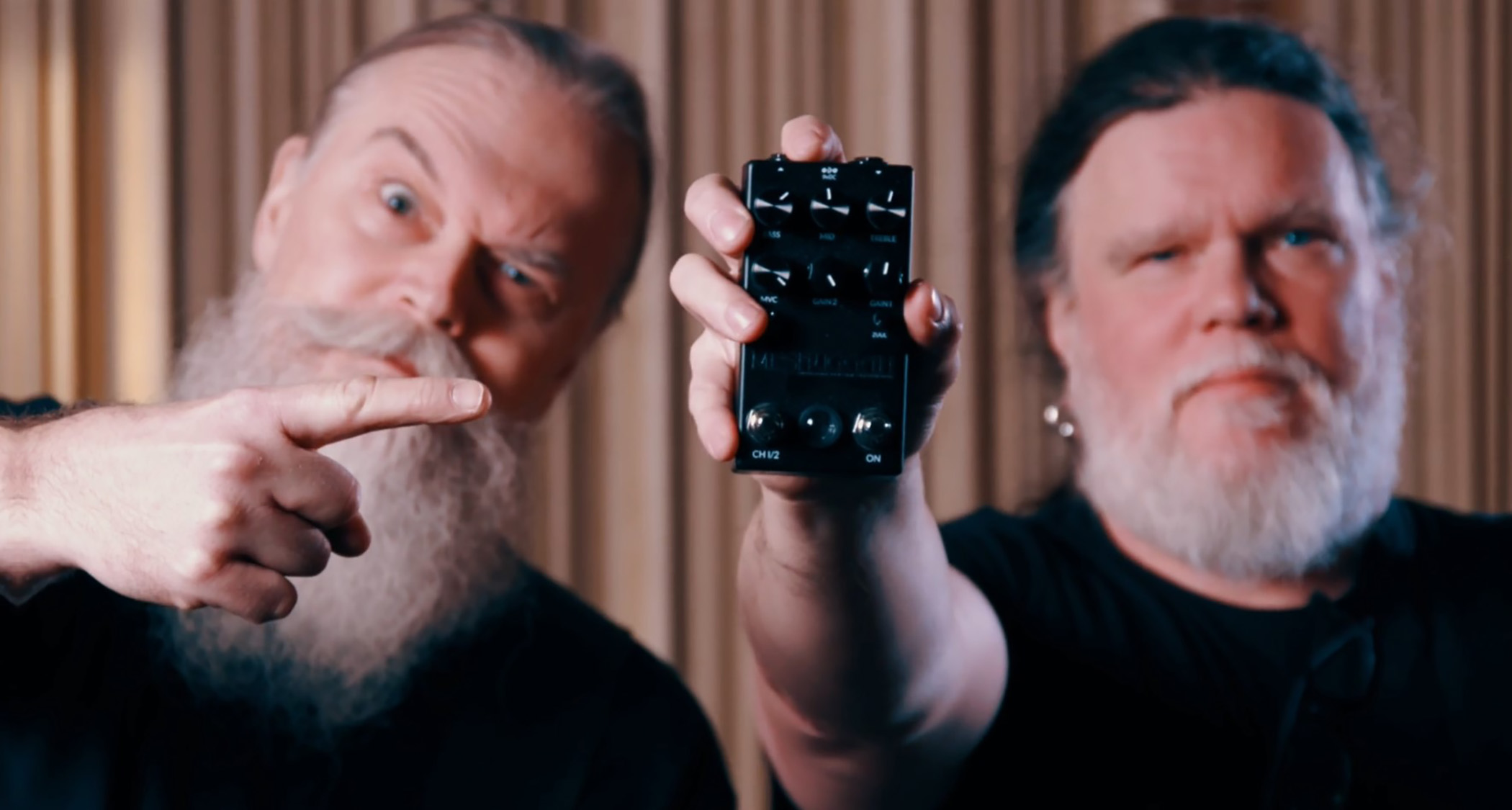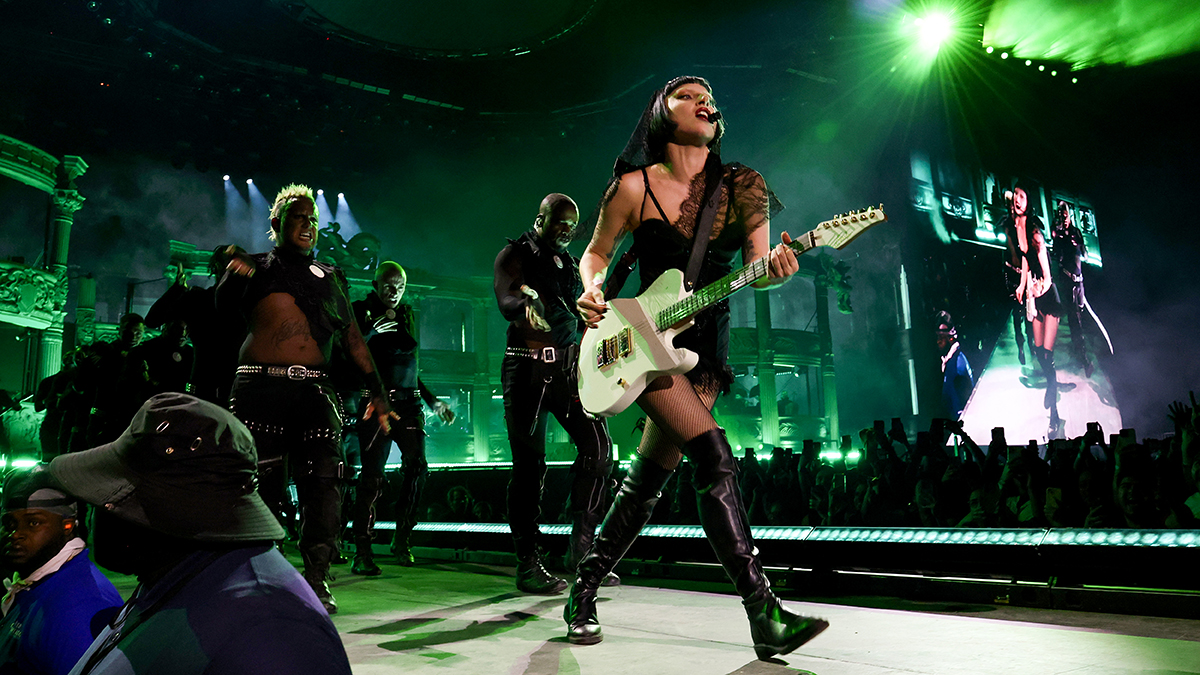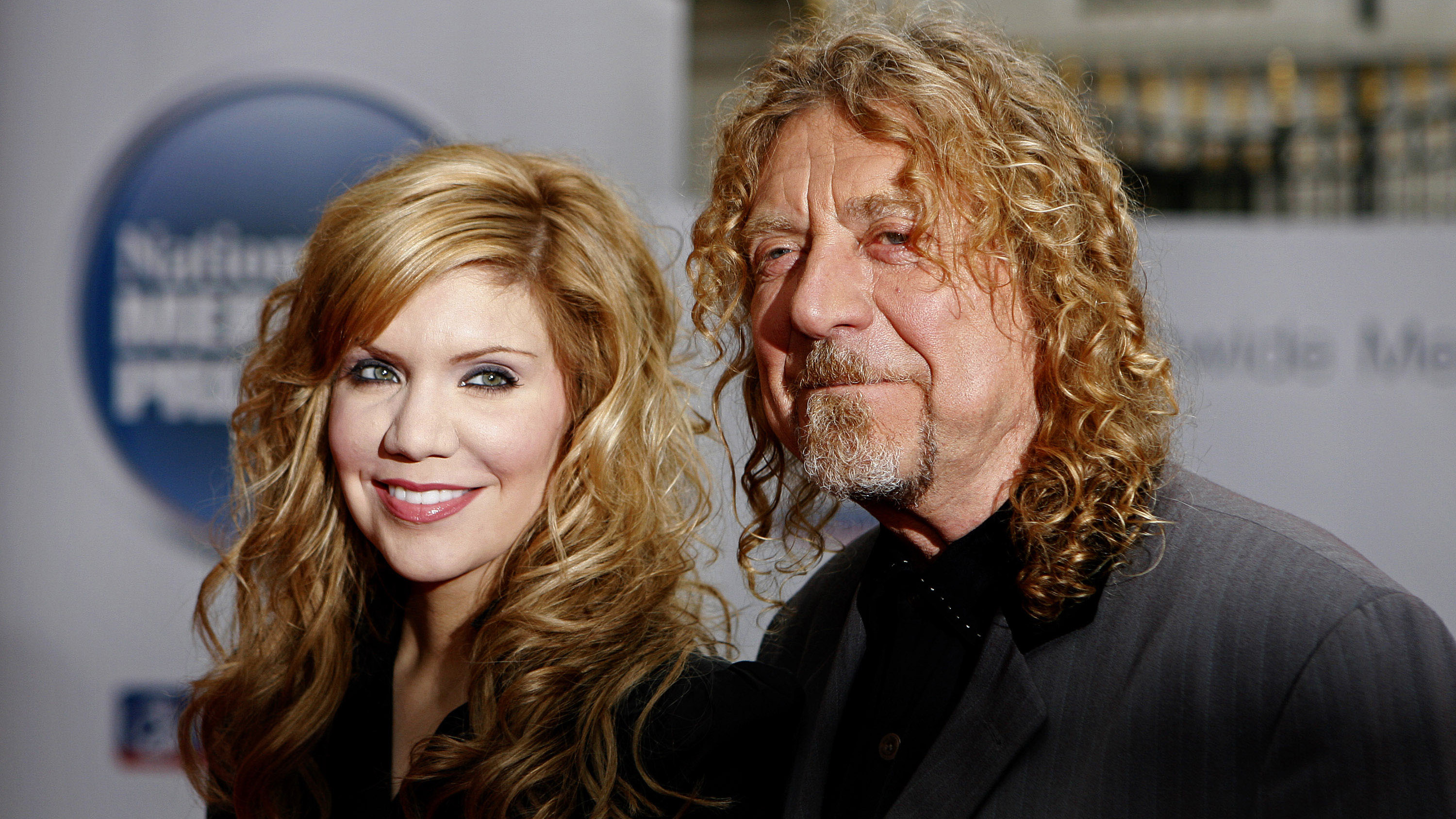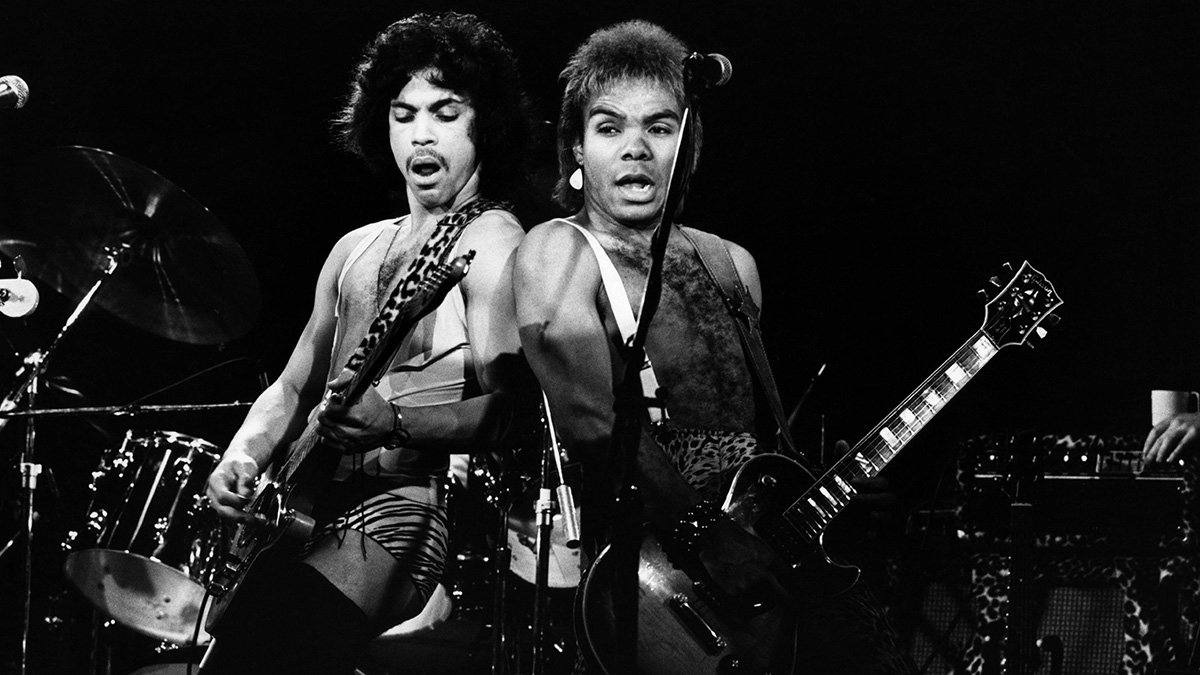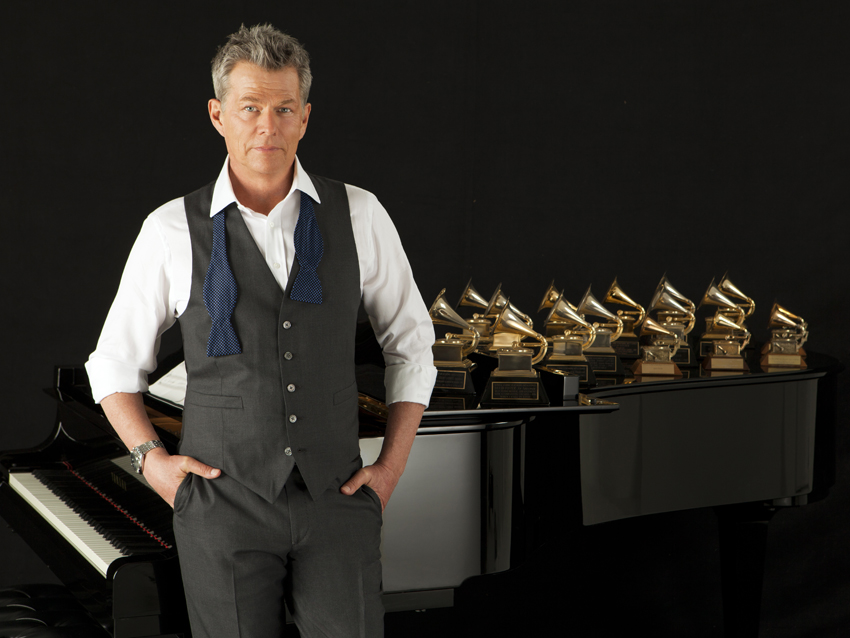
Producer David Foster talks about 16 career-defining records
"So how do you become a record producer?" During the course of his career, David Foster has been asked that question time and time again, and while his answer might change, depending on the situation, the thought bubble over his head is always the same: "If you have to ask how to become a record producer, you'll never be one."
Expounding on this sentiment, the Canadian-born multiple Grammy winner and Oscar nominee explains that, while his own career path took a series of twists and turns, he was always set on being a musician. "How or in what capacity, I wasn’t quite sure," he says. "But music was the goal that I chased."
In his teens, Foster dreamed of leaving Vancouver Island to play piano in nightclubs. He joined a series of bands, one of which, Skylark, scored a Top 10 hit in 1973 with the song Wildflower. The group had moved to LA to be in the center of the music business, but when they couldn't duplicate Wildflower's success, they broke up and moved back to Canada – all except for Foster, whose skills as a keyboard player were being called upon by the city's hottest producers. "It was exciting being in the room with all of the musicians," he says. "But a lot of the time, I would be looking through the studio glass at the producers and thinking, 'I can do what they do.'"
Foster studied the greats and took mental notes, but he says that some of his biggest lessons – and opportunities – came from working with the not-so-greats. "The bad producers were these 'hang guys' who didn't have any real talent," he notes. "They’d look to me and say, ‘Hey, why don’t you come up with an intro?’ The bad producers would ask me for my opinions, which I was more than happy to offer. If the guy making the record was weak, I would always try to grab control."
And grab control he did. Foster produced the eponymous debut of his own band, Attitudes, and it wasn't long before he was manning the board for other artists. The hits started coming – for The Tubes, Chicago, Kenny Rogers, John Parr, Whitney Houston and a staggering amount of others – with Foster's name appearing on albums that have sold, collectively, in the hundreds of millions. Over the years, his multi-platinum ears would become especially attuned to new and developing artists who would go on to become household names, such as Celine Dion, The Coors, Michael Bublé and Josh Groban.
Foster admits that his criteria for producing an artist can be "a bit of a bouncing ball," but above all else, he looks for superlative vocals. "There’s plenty of people who can sing OK that make terrific records, and I love them from afar," he says. "But when I make a record, I need great voices. That’s always my mandate."
His track record would suggest a man who is seldom wrong, but Foster happily rattles off some of his more notable bad calls: "I told Celine Dion not to record that Titanic song. That's about as big as you can get. Flashdance? I thought, 'Welder by day, disco dancer by night – who wants to see that?'" He also passed on producing Janet Jacket's first album and told Richard Marx to stick with the songwriting but leave the singing to the pros.
"But I told Whitney Houston that she had to record I Will Always Love You for The Bodyguard," he says pointedly. "It probably sounds funny, but I’m actually proud of my failures – they enable me to enjoy my successes. And I’ve been right probably as many times that I’ve been wrong, so I can’t complain.”
On the following pages, Foster, who, in addition to maintaining a busy production career also serves as Chairman of Universal's Verve Music Group, looks back at 16 career-defining records he's had a hand in. Goodness knows there will be more to come.
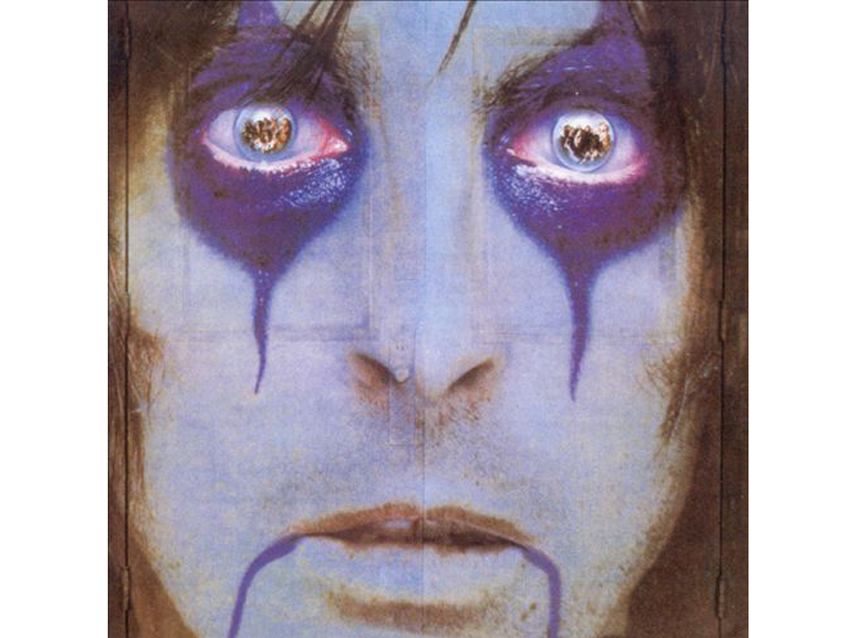
Alice Cooper - From The Inside (1978)
“I love Alice, first of all for having the guts to ask somebody like me to produce his record. I haven’t listened to this one in a long time, so I don’t know how well it holds up. But I will say that it was the most fun I ever had making a record. Ever.
“Alice was a guy who got up in the morning, kissed his wife goodbye, drove his kids to school, played a round of golf and then came to the studio and worked his ass off with me. When he was done, he’d play an arena and cut chickens’ heads off.
“He’s the greatest. I learned from him, and I think he learned from me, too. I felt comfortable with him. He allowed me to do my thing, so I’m thankful for that, too. Alice respects people who know what they’re doing. We had a wonderful time.”
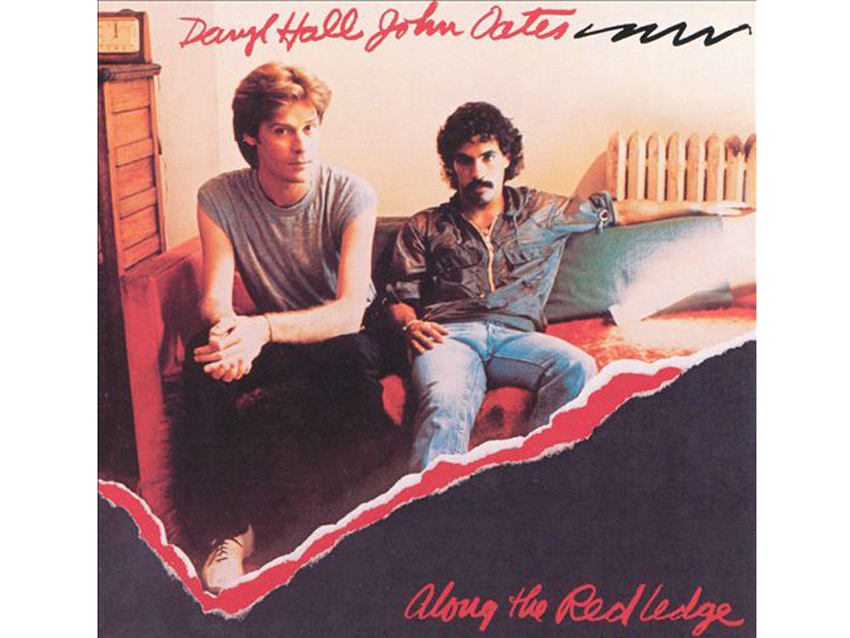
Daryl Hall & John Oates - Along The Red Ledge (1978)
“I have to hand it to Tommy Motolla, who gave me the shot at doing this record, and to David Paich from Toto, who recommended me for the job when he couldn’t do it.
“Still, I have to say that it was a bit of a misfit. Daryl was way into his rock period, and I was into my R&B period – I’d just come off from working with Earth, Wind & Fire. We kind of clashed a lot. I don’t think that he thought I was the right person for the job, even though we wound up doing two records together.
“Strangely, even though Daryl was way into rock and I was into R&B, after we split up, I had a huge rock hit with The Tubes, and Hall & Oates had their big R&B hit with I Can’t Go For That. We had a massive influence on each other – that’s probably the best way of putting it.”
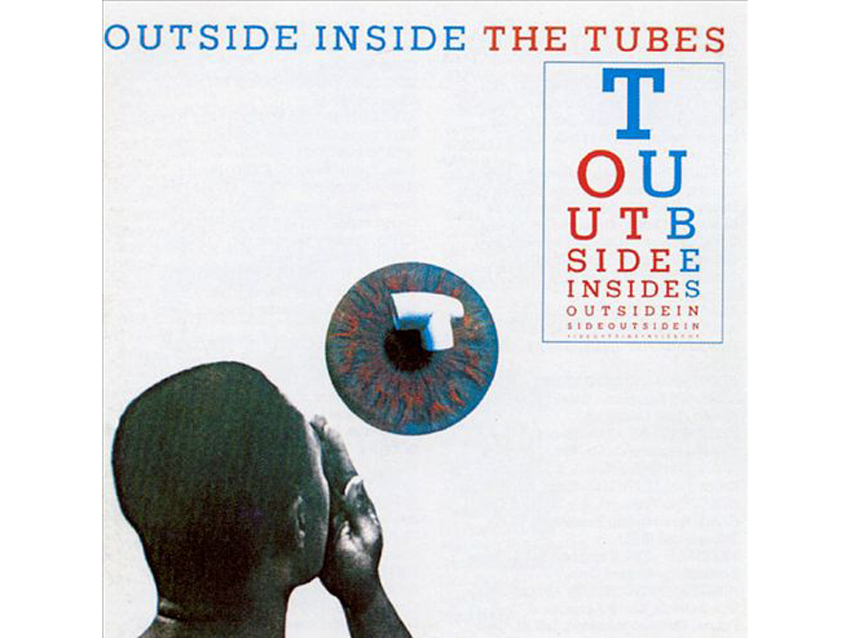
The Tubes - Outside Inside (1983)
“These guys were light years ahead of their time. Prairie Prince – incredible drummer. Fee Waybill – great singer. Mike Cotton, who now has a huge career a set designer – he was a zany, crazy guy, totally brilliant.
“When I produce a record, I roll up my sleeves; I’m not one of those passive guys. I really get in there and make sure every note is measured. I tell the bass player, ‘You have to play it like this,’ or I tell the drummer, ‘It’s got to be like this.’ That’s annoying to a lot of people, and it was annoying to The Tubes. But the results are fabulous.
“She's A Beauty was a smash. Steve Lukather and I wrote it together, and Fee wrote the lyrics. The three of us were way in the zone with the song, but the rest of the band, because they weren’t part of it, they didn’t feel that it was right for the record. Maybe they learned to like it after they got more money for their gigs [laughs] – I don’t know. But it was a great experience working with them. Really talented guys.”
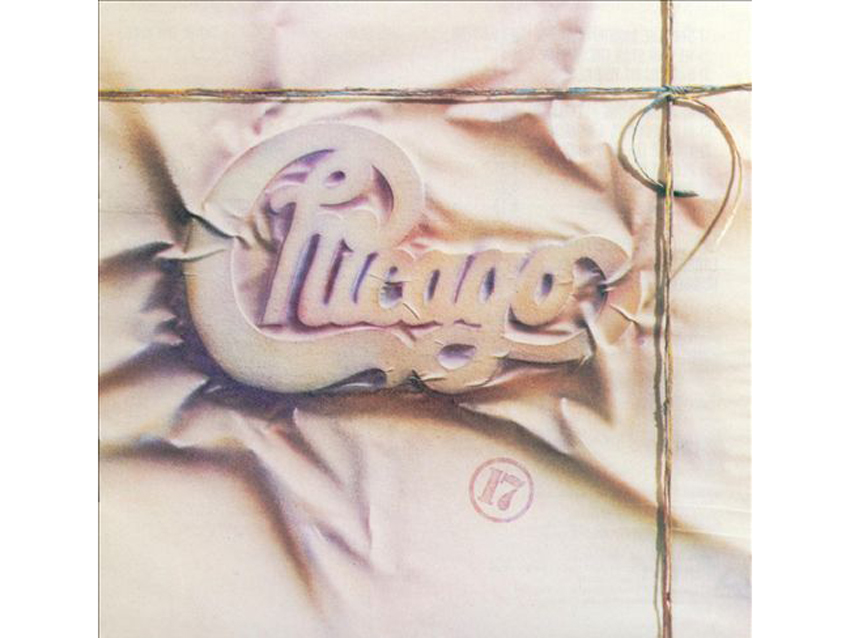
Chicago - Chicago 17 (1984)
“I was supposed to do Chicago 15. I took a meeting with the band, but they passed on me, which was fine. That album sold about 150,000 copies – not what they were used to doing. But I got to do Chicago 16, which was great. I was a massive fan. I remember being blown away by the Chicago Transit Authority album. I mean, these guys were my idols.
“It was funny doing Chicago 16, though. I went to [drummer] Danny Seraphine’s house, and I sat right in the center of the room while the whole band played me the 13 songs they wanted to record. With each one I got more and more sad. The songs were shit.
“At the end of the 13 songs, I had a choice to make: Either I could say, ‘Hey, great! Let’s get to work,’ or I could say what I did say, which was ‘These songs are not good enough to be on a Chicago record. You need to start again.’ I told them that I would be on top of them in every way possible to remind them of their greatness. We would get the songs we needed. It took a year.
“Chicago 16 had a number one hit, Hard To Say I’m Sorry, but 17 had a few hits – You’re The Inspiration, Hard Habit To Break, Stay The Night. It was great writing with them. Every day I was so excited to go to work.
“They weren’t always happy that I was so hands-on, but they were thrilled about the success we had. There was some tension in the band. They’d been together a long time, and so they had gone through a lot by this point. There were musical clashes, personality clashes. They would take a meeting about taking a meeting. You know, being in a band is tough, especially one with seven people in it. But we did some fantastic things together.”
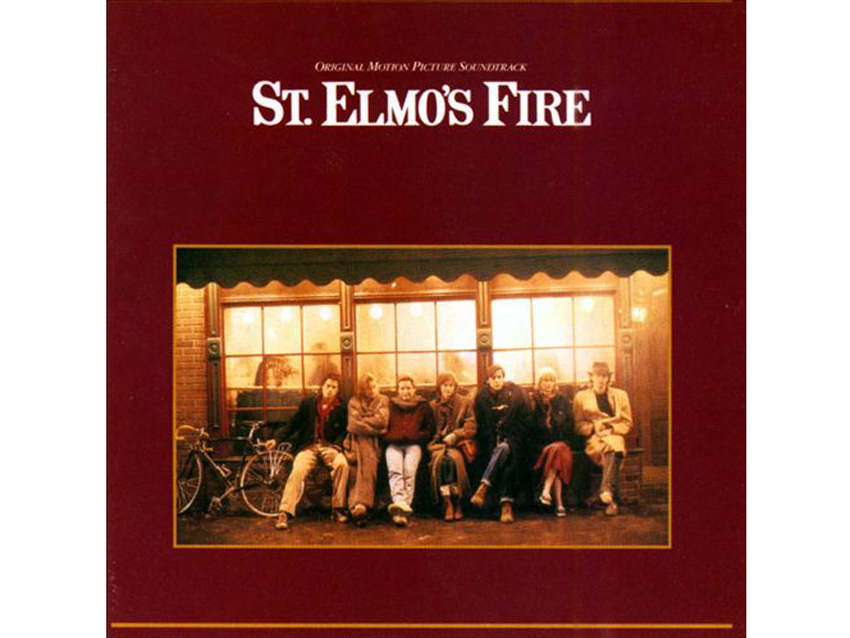
St. Elmo's Fire - Original Motion Picture Soundtrack (1985)
“Finally, a record that I could do all by myself. I didn’t have to rely on anybody – no singer, no nobody. [Laughs] It was so nice to have an instrumental hit where it was all me. I don’t mean that in an egotistical way, just that it was great not having to answer to anybody.
“I had written this song for the movie. The director, Joel Schumacher, said that he wanted it to sound ‘East Coast, autumn, college, falling leaves,’ that whole thing. So I wrote a piece of music in Vancouver, totally excited – I thought it was great – and I sent it off to Joel. He called me up and said, ‘I really don’t like it.’ I was so dejected.
“Later that day, I was working with Bryan Adams. Quincy Jones had asked us to do a Canadian version of We Are The World. The group we put together was called Northern Lights. I got Neil Young, Joni Mitchell, Anne Murray, Loverboy, Oscar Peterson – all the great Canadians came together. And guess what? The melody that I wrote for St. Elmo’s Fire? Bryan loved it. We used it and wrote a song called Tears Are Not Enough.
“The next day, Joel Schumacher called me and said, ‘Oh, my God… I was so wrong. This melody you wrote? I love it, I love it, I love it! Listen, I know you didn’t sleep well because I told you I didn’t like it… ‘ And I had to say, ‘Joel, I didn’t sleep well because I was working all night. That song is gone.’ He was upset, but I said that I’d write something else for him.
“I was driving across the bridge in Vancouver, and the love theme, St. Elmo’s Fire, came to me. So we got two songs out of it. It was nice to have that happen, because usually things don’t just pop into your head like that; usually you have to sit at the piano and bang it out and work on it. That was one of the few times – the only time – that I was ever inspired in my car.”
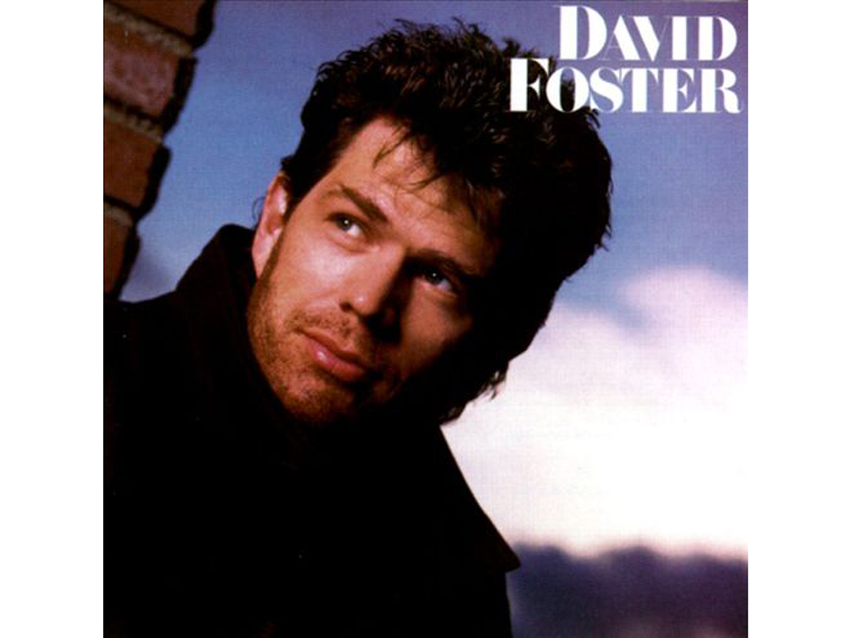
David Foster - David Foster (1986)
“After St. Elmo’s Fire and having a hit instrumental, I was kind of inspired to maybe try to be an artist. It… didn’t work out. [Laughs] I guess it’s just easier for me to produce other people than to produce myself.
“I was happy because Olivia Newton-John, who was then probably at the height of her career, decided to sing a duet with me, which was pretty incredible. We did a song called The Best Of Me. She had just given birth, so we took a remote truck to her house in the pouring rain. She breast-fed and sang at the same time. It was cool. She was great. A wonderful lady.”
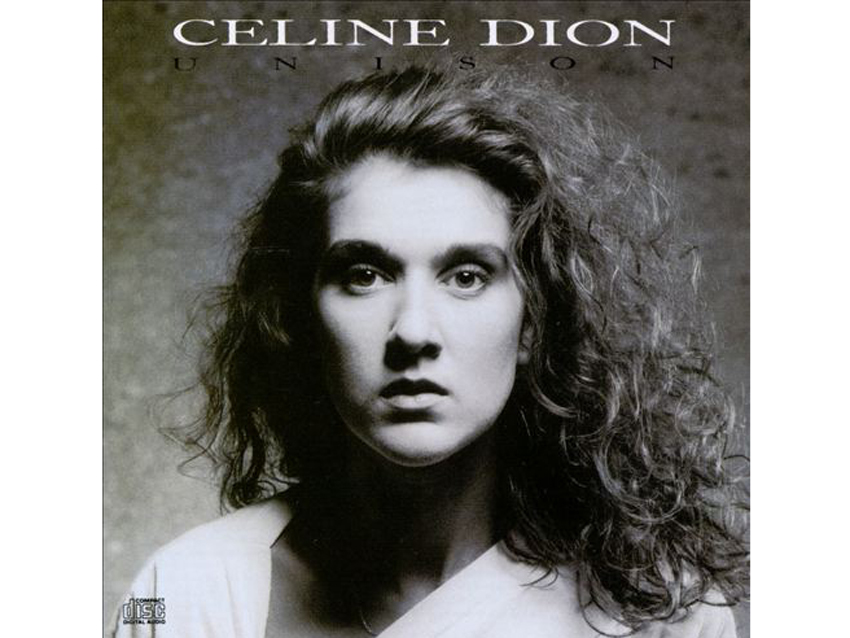
Celine Dion - Unison (1990)
“I knew she had it. I got tipped of to her by a friend of mine at CBC [Canadian Broadcast Corporation]. ‘You gotta hear this girl,’ he said. We flew up to Montreal, heard her, and I flipped. Completely flipped. I brought her to LA, worked on her first album and introduced her to some people.
“Strangely, I didn’t have a hit with her. The one hit on the album was the song Unison, and she’d already recorded it. So as good as I might have thought I was, I wasn’t able to deliver her a hit. But in the albums that followed, I was the lead hitmaker.
“Celine’s voice was the most spectacular thing I’d ever heard. I couldn’t believe she could do what she was doing. I was so blown away. When I met her, I told her that two things were going to happen to her: ‘One thing is, Barbra Streisand is going to know who you are. And two, you’re going to be known by your first name only.’ I told her that the day I met her.
“Still, it took a while. Even after Unison and Where Does My Heat Beat Now, people still didn’t know who she was.”
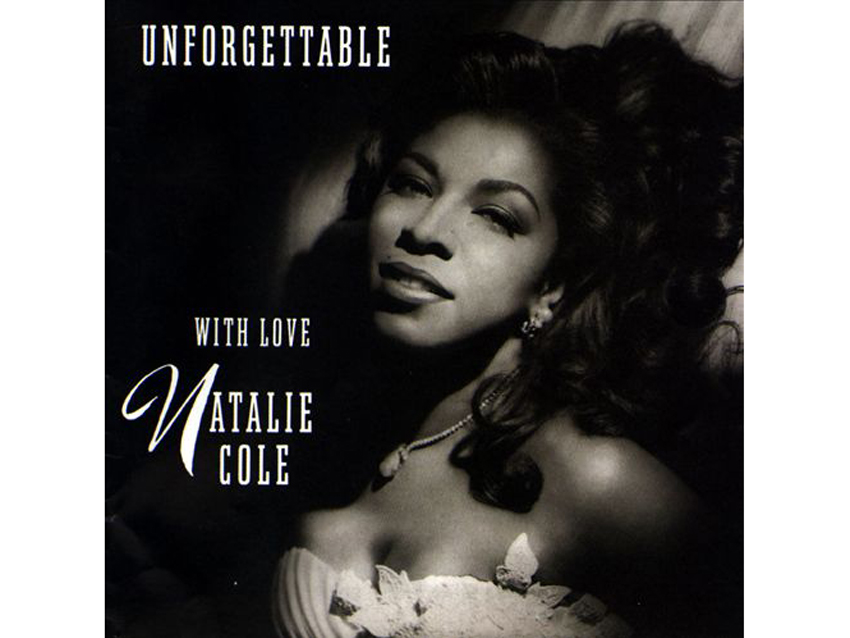
Natalie Cole - Unforgettable (1991)
“This is a milestone. It’s a great lesson in not doing anything for money. The album happened right at the end of the ‘80s, when my career, for whatever reasons, took a bit of a nosedive. I’d come off so much success, but as we were entering the ‘90s I was getting a little nervous, like, ‘Damn, I’m not hitting it out of the park like I used to.’
“When this project came along, I said to myself, ‘This is amazing. I’m just going to do this for the love of the music.’ Lo and behold, it sold seven or eight million copies and won three Grammys.
“It taught me a really good lesson. Before Unforgettable, during my down period, I did a couple of projects for money – I mean, just for the money – and I regret it. After Unforgettable, I never do anything just for the money. Anything I do now, I do it because I believe in it.
“The concept was Natalie’s, and it might have also come from Tommy LaPuma, who was one of her producers, and her husband, Andre Fisher. The three of us did seven songs each on the record. I was a little nervous about Top 40 radio at the time because I’d had a few stiffs in a row. When I committed to this, I thought, ‘I don’t have to worry about radio; I can just do it for the love of music.’
“I actually thought it would go unnoticed. However, when we did the duet with Natalie and Nat King Cole on Unforgettable, I knew there was something really special there.
“I don’t think anything like this had been done before we did it. We didn’t have the technology that we do now, so putting those voices together was a lot harder than it would be today. The tapes of Nat King Cole were in pretty good shape, and his voice was isolated on his own track. It was obvious that he was singing in the middle of the room because there was a ton of leakage on his mic.”
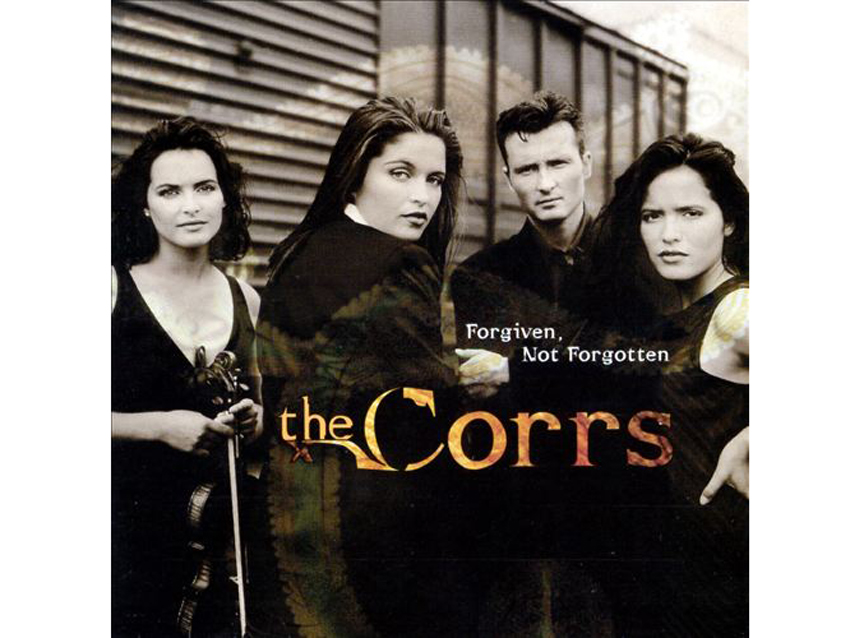
The Coors - Forgiven, Not Forgotten (1995)
“I just love them. I was producing Michael Jackson in New York, and I got a tip from my friend Jason Flom at Atlantic: ‘I saw this group. It’s your department – pop. I don’t know if they’re good or bad, but they’re beautiful.’
“They came over to the Hit Factory and waited for me in the lobby. When you’re working with Michael Jackson, you can’t just walk around freely – there’s armed guards everywhere. But I’d go out to the bathroom in the lobby, and I’d see them sitting there. The second time, I kind of looked at them, and they said, ‘We’re here to see you.’
“We went upstairs to the sixth floor; they had all of their Celtic instruments with them. One girl was more beautiful than the next. They played one acoustic guitar for me, and I signed them on the spot. They were breathtaking. It was one of those golden moments.
“Working with them was fantastic because they knew who they were. Their brother Jim was a mastermind; he was like a Mini Me. He knew just what to do. He was a good songwriter, he was a good piano player, a good programmer – he did a lot of the work. He really co-produced this record without getting the credit.”
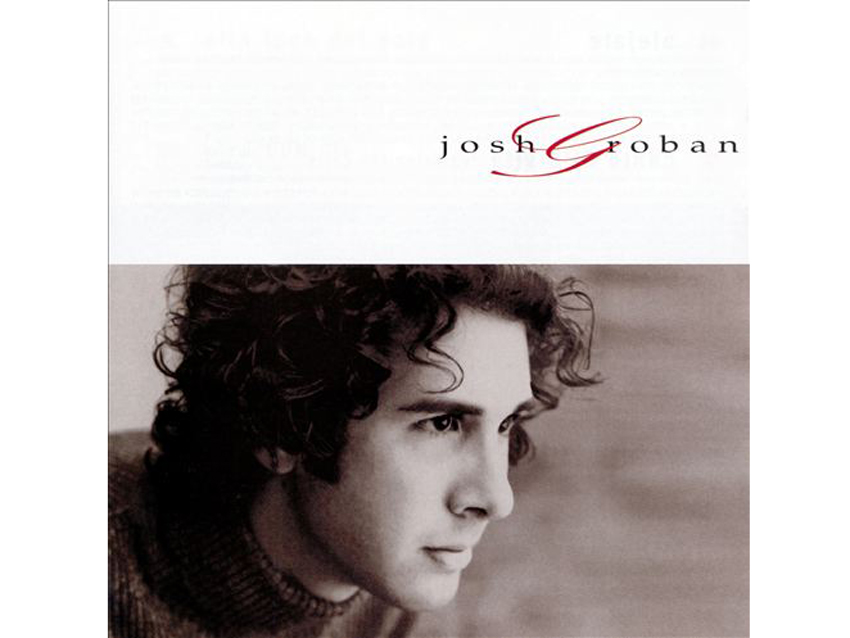
Josh Groban - Josh Groban (2001)
“I was looking for a voice to sing the rehearsal at the Oscars; we were up for the movie The Prayer. I made a call to the vocal coach, Seth Riggs, and I said, ‘Send me everybody who sounds like Andrea Bocelli.’ He sent me a cassette, and unlike The Coors, where one girl was more beautiful than the other, on this tape one singer was worse than the next.
“The last guy on the tape – number four, Josh Groban, 17 years old, singing All I Ask Of You from Phantom Of The Opera – was unbelievable. I flipped and said, ‘That’s the voice!’ I got him out of school, got him to my studio and said, ‘Buddy, you’re going to sing at the Oscars tomorrow for rehearsal.’ That’s how it started.
“My buddy, Humberto Gatica, whom I’ve worked with a lot, said to me, ‘You gotta sign that kid. Just sign him.’ But it was tough. What do you do with a kid who sounds like that? What happened was, because Andrea Bocelli didn’t want to make pop records anymore, I made a record with Josh as though it were a Bocelli record. In my mind, I was thinking, ‘What would I want Bocelli to do?’ Josh was very young, so he didn’t have much say in anything; he just went along with the program.
“Here’s the thing, though: Josh’s dirty little secret is, when he goes home at night, he listens to Radiohead and Portishead and things like that. He’s a rock ‘n’ roller at heart, but when he opens his mouth, he has that gorgeous voice. So he was conflicted for much of the time that we worked together. He was very appreciative of the success, but I was kind of making my records and not his records.
“In an interview recently, he said something like ‘Now that I’ve worked with Rick Rubin and Rob Cavallo, I’m getting a chance to make music without somebody telling me to sing.’ Rick Rubin produced Josh’s fourth album, which didn’t go well. But I think he had to do that record to get to the Rob Cavallo record. I haven’t heard it, but the single is great. Rob’s a brilliant producer and a good musician, a real roll-your-sleeves-up guy.
“I joked to Josh recently, ‘You know I’m trying to find the new Josh Groban, because, hey, you’re 32 now…’ But the longer I go trying to find the new Josh, the more I realize how great he is. There’s a lot of guys who can sing sort of like that, but Josh is in another stratosphere.”
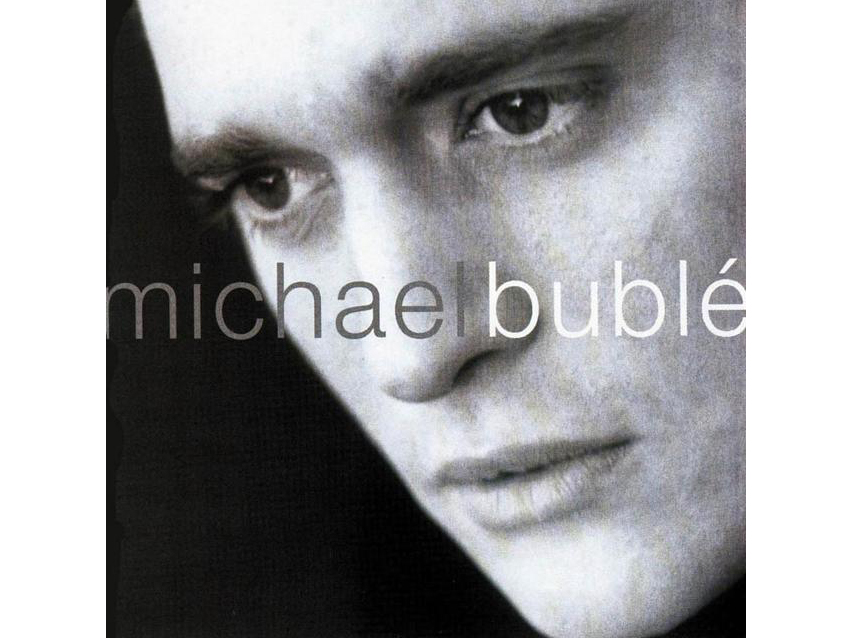
Michael Bublé - Michael Bublé (2003)
“The same thing kind of happened with Michael that happened with Josh. I kind of bullied him into doing the kind of album I wanted to do, but lo and behold, it was super-successful. It’s interesting about picking artists: Take people like Celine and Josh and Michael – try to find somebody who’s in that lane. If you find somebody who’s in their own lane, that’s half the battle right there.
“Harry Connick Jr. was in this lane for a while, but he got very busy with his acting. And when he did make records, you’d want to slash your fucking wrists because they were so slow. All of that exciting, big-band stuff that he’d done, he was bored with it. So that lane he was in was wide open for somebody else. We took it.
“Now, Bublé, unlike Josh Groban, probably knew who he was much better. Or I would say that who Bublé thought he was and what I wanted to do with him were more in sync with each other. We made four incredible records together – five, actually, including the Christmas album, although Bob Rock did produce some songs, as well – and it was a great marriage.
“Bublé is a smart guy; he’s never wandered from his lane. The first album had no original songs on it. The second had one, the third had two, the fourth had three and the fifth has four. So he’s not a guy who’s going, ‘Hey, I’m a songwriter now.’ He’s giving people what they fell in love with – the covers.
“He’s got great musical taste, he’s a great performer, a great singer, and he’s a great songwriter. There’s no weak link in his career.”
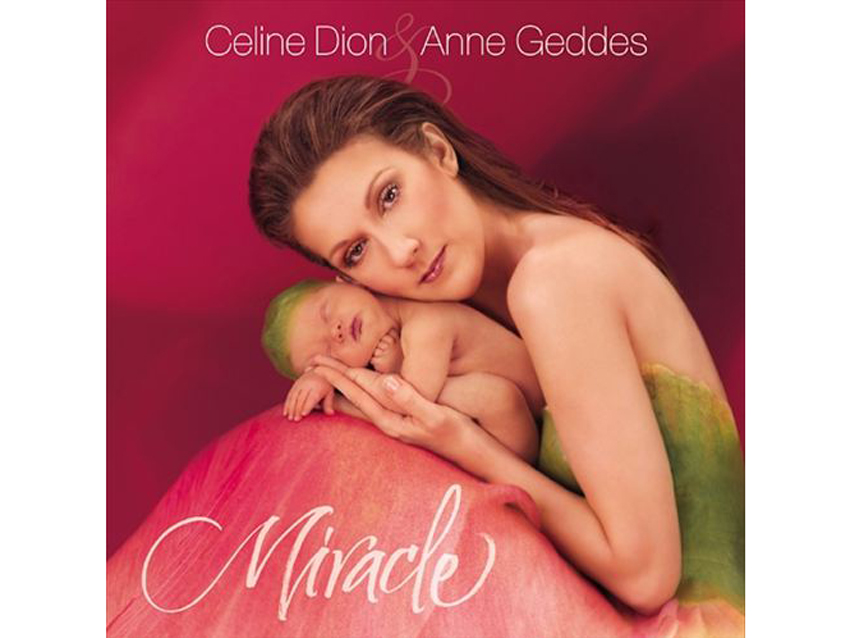
Celine Dion - Miracle (2004)
“This was a labor-of-love record. To sit in a room and do beautiful melodies and not worry about radio, not worry about having a hit – it was fantastic. I went to Vegas and sat with her after she’d done a show, and during a conversation that went till two in the morning, we’d pretty much constructed the album.
“I went away and did the tracks, came back to Vegas where she did her vocals – a very peaceful, calm way of making a record. Commercially, the album did quite well but not amazingly. But we both loved it, her husband loved it, and I think it’s a beautiful labor of love.
“Obviously, a lot has changed since I did Unison with her. But she loves her camp, is loyal to her camp, and she personally hasn’t really changed. She’s still polite. Here’s something interesting: During Unison, she would be at the mic, and she would put her hand up and ask if she could go to the bathroom. Making this record, she did the same thing.
“After 150 million albums and God knows how much money, mansions, jets and you name it, and there she was, putting up her hand and asking to go to the bathroom.”
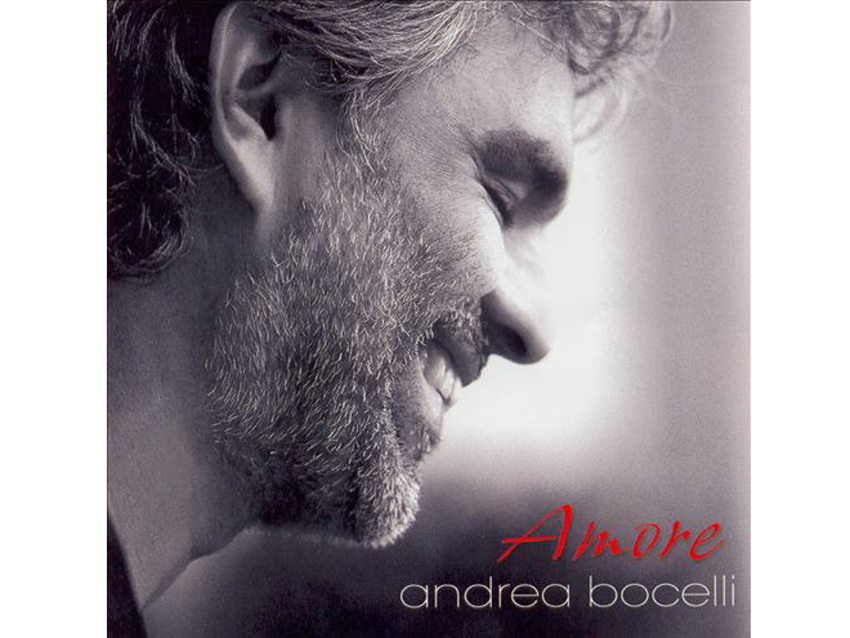
Andrea Bocelli - Amore (2006)
“I have to hand it to Humberto Gatica and Tony Renis. Humberto, over the years, has introduced me to a lot of Latin music and artists that I never would have discovered on my own. Humberto and Tony picked the material for this album, so a lot of credit goes to them.
“The songs are incredible, and I think I did a great job of arranging them, along with Humberto and Tony’s help, and some other people, too. I was kind of in the driver’s seat when it came to the arrangements.
“Andrea’s voice was flawless. He’s my favorite singer of all. I hate to say that because it sort of disses every other singer. But it’s true: he’s my favorite. Male or female, it all comes down to him. Cutting vocals with him is heavenly. He’s not a one-take guy, though. He’s capable of doing one take, but in my world, where I want that extra 10 percent, I don’t think one take exists.
“His talent is astonishing. He’s a renaissance man, who walks in both the pop and classical worlds. I don’t know anybody else who does that, except Wynton Marsalis, and I don’t know him. And he’s not a singer."
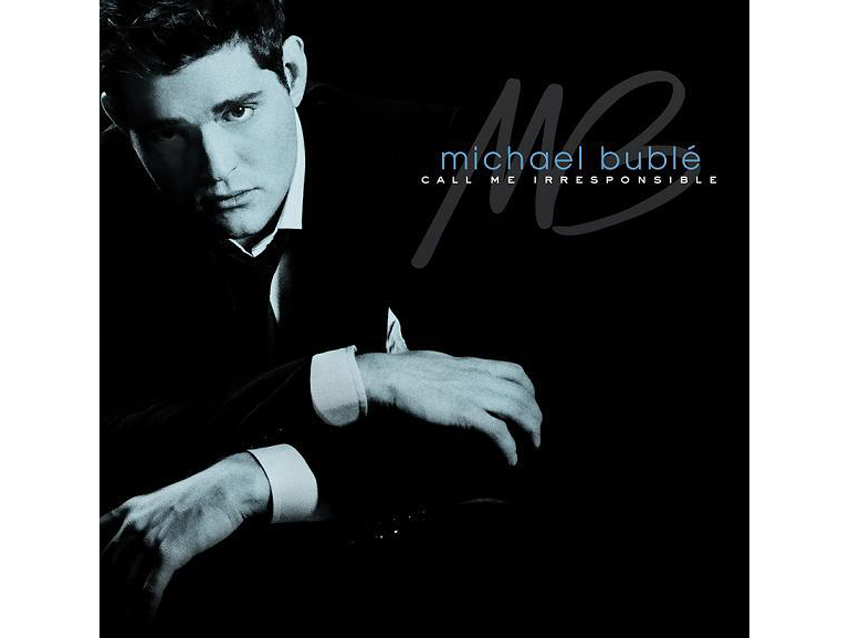
Michael Bublé - Call Me Irresponsible (2007)
“There were definitely a few songs that Michael felt strongly about doing, things like The Best Is Yet To Come and Wonderful Tonight. He’d sit with me and say, ‘Now, I kind of want it to be like this… ’
“He really gives good guidance. You’re not working in a vacuum with Michael. Like I said, he knows exactly who he is. As these albums progressed, and as his career got bigger and bigger, he contributed more and more, and always in a really great way.
“Funnily enough, he had never heard the song Me And Mrs. Jones. I came up with the idea and did the arrangement for it. Now he loves it, especially after seeing how well it goes over. And it’s a song about fucking around, too [laughs].
“Everybody thinks there’s some secret potion for doing what we do, but we’re just doing what we do. We’re sitting in a room going through YouTube. Take Me And Mrs. Jones: it’s a song I’ve always loved; I know how to play it on the piano. I said, ‘Michael, here’s a great song,’ and I pulled up the lyrics. I will say that doing this was a lot harder before the Internet.”
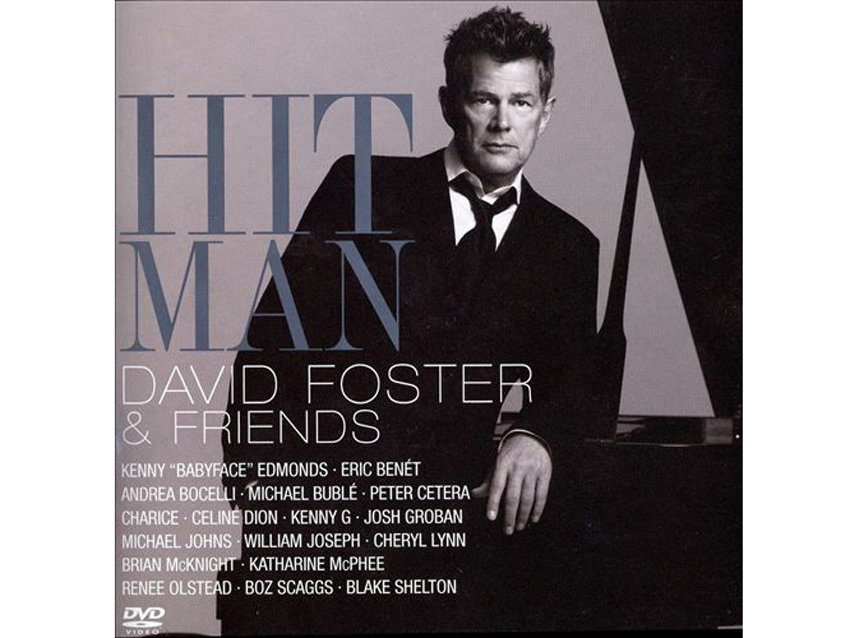
David Foster - Hit Man (2008)
“This was a great experience for me. I didn’t have to be the singer, and I didn’t have to be the artist, particularly. My manager, Marc Johnston, and my wife, Yolanda, both pushed me to do it. I swear to God, it was my funeral while I was alive. [Laughs] This was eighteen artists whom I’ve worked with all coming out and singing songs that I’d done with them. Does it get better than that?
“Full orchestra, Vegas, packed, 20 thousand people – not bad. Of course, the audience was there to see Groban or Bocelli or Bublé or whoever; they weren’t there particularly to see me. I was the glue for the night. The DVD was spectacular, the music was spectacular – I think it was a complete home run.
“If you’re just a listener, all that music – I mean, forget the fact that I made most of it – but all of those artists are unbelievable. It was heavy lifting beyond belief, though. To get all of those people in one place for one night, that’s not easy.
“I did have a great idea for an opening: I wanted to do Love Me Tender with Bocelli, Bublé and Groban singing it, but I wanted them to do it in each other’s style. Somewhere along the line, it got foiled – somebody didn’t want to do it, or maybe somebody’s manager had a problem, I don’t know. But it would have been cool to see Bocelli come out [snaps his fingers, sings] – ‘One, two! Wise men say…’ Do it Vegas-style, right? And then Bublé does it operatically. Maybe Josh could be on the drums or something. Oh, well, there’s always next time.”
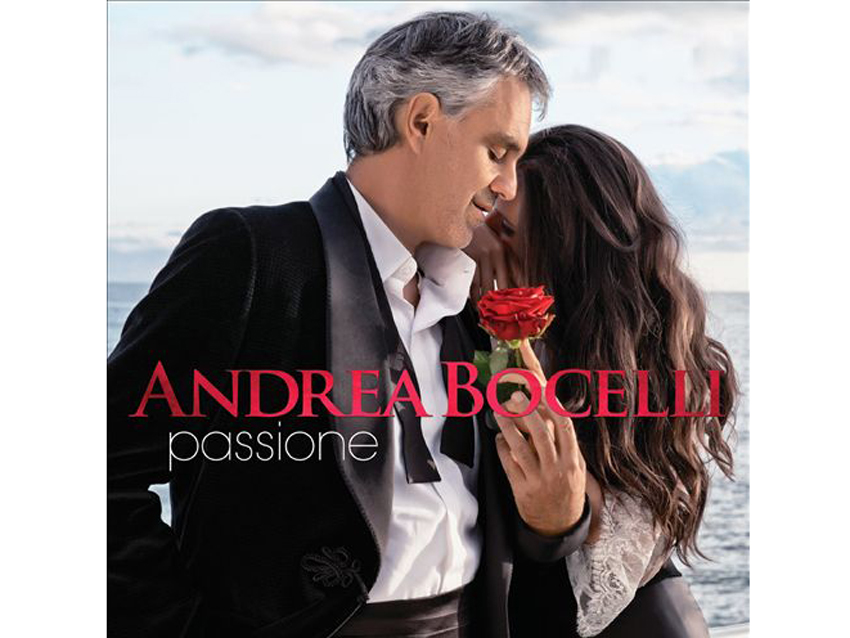
Andrea Bocelli - Passione (2013)
“It’s a follow-up to Amore. I waited eight years to do it. This has special, extra meaning for him because he was a piano player in a bar when he was younger, and he played a lot of these songs. Can you imagine walking into a bar and seeing Bocelli before he was famous singing September Morning?
“That’s what this album is, and I think it’s his favorite record in a long time. Because he doesn’t like to do pop music – that’s why I found Josh Grobin. Even so, he’s totally authentic. He didn’t just learn how to do this music; he lived this music. That’s how he made a living. So when he sings September morning, he means it.
“Getting ready for this record, I had some preliminary meetings with a wonderful guy in Bocelli’s camp named Felippo Sugar, who owns Sugar Music. Felippo is a great music lover and has great ears, and so I sat down with him and one of my A&R people, Jay Landers, and we concocted a list of about 60 songs.
“Then I flew to Italy with a guitar player, Ramon, who plays on the record. Ramon and a programmer and I sat in a room with Bocelli for about two weeks and we went through the list: ‘What about this? What about this? Go to the Internet, get the lyrics!’
“The duet with J. Lo came really late. I was pushing Bocelli to do a song called Contigo en la Distancia, but he didn’t want to do it. I said, ‘Well, we need another Spanish song, dammit!’ And I was going home the next day. After lunch, he came to me and said, ‘What about Quizás?’ He played me some version of it, and it was fucking horrible. It was unlistenable. I said, ‘Are you fucking kidding me? This song’s a joke.’
“He just said, ‘Listen to the chords, listen to the melody. Sit and think about how you, David Foster, would change it and make it sexy.’ And when I started peeling back the layers of the song, I discovered this beautiful melody. I changed some chords, slowed it down, put a flamenco guitar solo in and a violin, and then I thought about the duet with J. Lo. It became a really sexy piece of music. Sometimes that’s how it unfolds.”
Joe is a freelance journalist who has, over the past few decades, interviewed hundreds of guitarists for Guitar World, Guitar Player, MusicRadar and Classic Rock. He is also a former editor of Guitar World, contributing writer for Guitar Aficionado and VP of A&R for Island Records. He’s an enthusiastic guitarist, but he’s nowhere near the likes of the people he interviews. Surprisingly, his skills are more suited to the drums. If you need a drummer for your Beatles tribute band, look him up.



